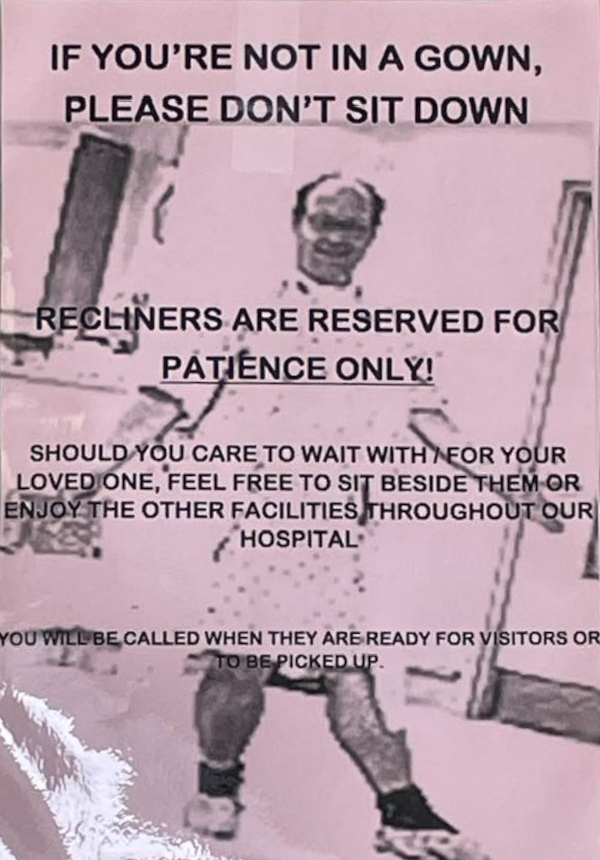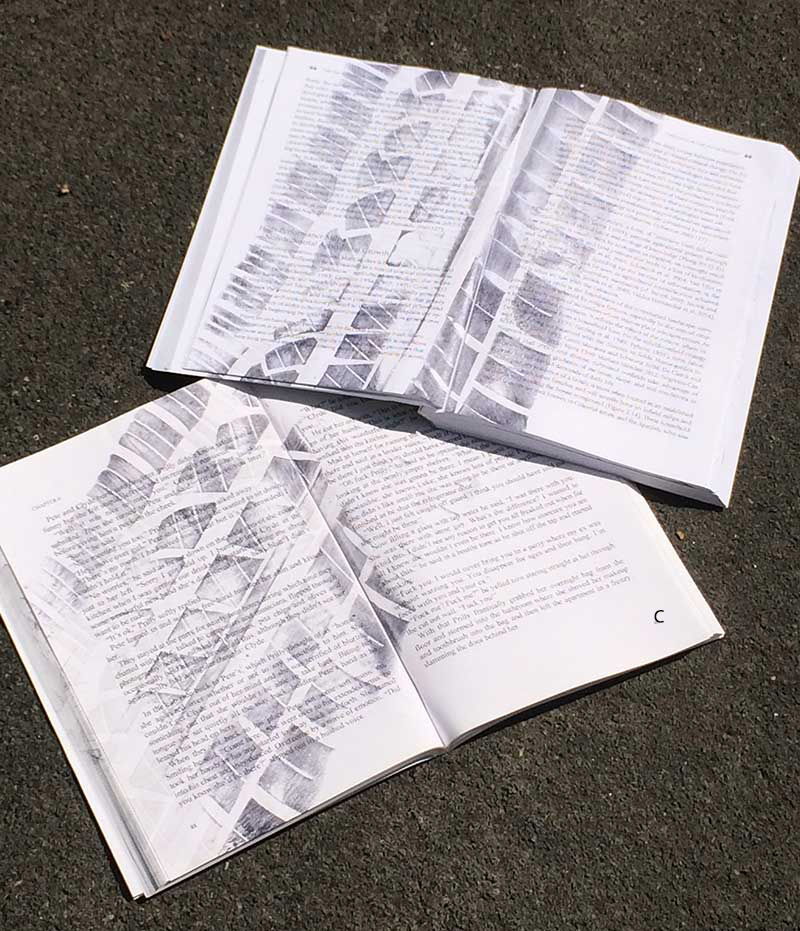


Mitch’s Blog
Patience
Sunday, January 28, 2024
PATIENCE IS A BULLSHIT VIRTUE.

Cyndi knows me well. She knows my patience for anything that doesn’t flow quickly is non existent. She, like my wife, kids, and close friends, has witnessed the regular eruptions when shit happens, and things need to start anew or slow to a methodical crawl to get done.
Starting anew. Slowing to a crawl. Both are terms that fit my current situation. With only 1.5 legs operating well and moving only with the aid of crutches, I’ve seen demon Patience extract its slow revenge. When I could regularly multitask around the house—laundry, cleaning, writing, cooking, all while watching an A’s game on TV—now my every action is carefully plotted out and planned. Moving from the bedroom to the kitchen. Remember to bring your meds with you! Where will you get a glass of water to take the pain pills with? Don’t forget to carry the book you’re reading with you. Is it small enough to hold when hands are clutching crutch handles? How does that coffee cup that Vida generously brought you get to the kitchen sink without spilling the half cup remaining? Only after crutching into the living room did I remember that it was chilly enough to need a sweatshirt, unfortunately still lying on the floor by the bed.
I had to work a system out quickly as I returned to my home in Canada after the Nanaimo emergency room visit following my fall on a forest trail. I assured the hospital staff that released me that I was staying with my angelic neighbors Jim and Karen, who would care for me. They were in fact a few steps away next door but not acting as nurses. They gave me space, and I was largely on my own for the couple of days prior to the return to the hospital for surgery. Some things I couldn’t do by myself, like carrying things from one place to another. 
 Things got easier when Vida flew in a couple of days later right after my surgery, though I’m not one easily catered to hand and foot. Then came the long ride back to California—she had to sit behind the steering wheel all 1000 miles over 2 days. Hobbling to the bathroom at highway rest stops in rainy Washington state was a major achievement. I did discover that I could negotiate the fillup at the gas station while Vida took the dog to a nearby grassy patch. The overnight hotel in Eugene involved more walking down long halls until Vida suggested I try scooting on the wheeled desk chair, which became my main mode of transportation around our hotel room. Medford was even better as the Fred Meyer department store had electric carts for disabled customers that I was able to drive around at almost walking speeds. And, arriving home, we were able to recover from a neighbor our Kneerover scooter that Vida used when she broke her foot last year. It rockets me from one end of the house to the other at warp speeds.
Things got easier when Vida flew in a couple of days later right after my surgery, though I’m not one easily catered to hand and foot. Then came the long ride back to California—she had to sit behind the steering wheel all 1000 miles over 2 days. Hobbling to the bathroom at highway rest stops in rainy Washington state was a major achievement. I did discover that I could negotiate the fillup at the gas station while Vida took the dog to a nearby grassy patch. The overnight hotel in Eugene involved more walking down long halls until Vida suggested I try scooting on the wheeled desk chair, which became my main mode of transportation around our hotel room. Medford was even better as the Fred Meyer department store had electric carts for disabled customers that I was able to drive around at almost walking speeds. And, arriving home, we were able to recover from a neighbor our Kneerover scooter that Vida used when she broke her foot last year. It rockets me from one end of the house to the other at warp speeds.
Stairs are still an issue. We only have a couple in our California ranch house, added to the plans without second thought when we remodeled decades ago. A step up to the bedroom, one down into the master bath, and a small one into the shower. I’ve never thought much about them, except for the possibility of missing one in the middle of a dark night. But now they are peak patience moments. Crutch up to the very edge of the step, push hard to hold my full weight on the handles, slowly lift my solid leg up till it is secure and balanced, then raise the other leg and the crutches to the new level. Full concentration is required. Even more care is taken going into or out of a wet-floored shower. Reaching the garage requires two steps. I haven’t braved that yet.
I’m abashed that I have never spent a lot of time thinking about the plight of people with physical disabilities, people forced to spend their entire lives with the limitations that I might have to cope with for only a few weeks. My admiration for their ability to negotiate their environments without full mobility has skyrocketed, and for the help given by their caregivers. As has my anger at those assholes who score themselves a disabled parking sticker just so they don’t have to inconvenience themselves finding a parking spot. Those extra few crutch steps into the Flying J in the rain to get to the washroom was a big deal in my condition and would matter to anyone who legitimately had that wheelchair sticker on their car.
Ditto for those in chronic pain. When I needed my meds, I needed them. And, fortunately, they worked well. But what if this was my permanent situation, rather than just a temporary healing? Or if the meds were not quite strong enough to mask the pain. I published one of the earliest books on chronic pain, the first work by sociologist Joe Kotarba. I confess I never fully understood this world though we remained friends for decades afterwards.
A meeting with the orthopedist tomorrow. Removal of the cast, hopefully, for something smaller and softer. A plan for recovery that will be measured in weeks. Physical therapy someday soon. And in a few weeks a return to walking the dog, dancing, jogging, hiking trails on several continents. An episode, not a lifestyle. That’s my hope tonight anyway. Someday this should just be a foggy memory. But there are parts that should clearly stay with me.
Patience, that bullshitter, has been teaching me some good lessons.
(c) Scholarly Roadside Service
Back to Scholarly Roadkill Blog
Scholarly Roadside Service
ABOUT
Who We Are
What We Do
SERVICES
Help Getting Your Book Published
Help Getting Published in Journals
Help with Your Academic Writing
Help Scholarly Organizations Who Publish
Help Your Professional Development Through Workshops
Help Academic Organizations with Program Development
CLIENTS
List of Clients
What They Say About Us
RESOURCES
Online Help
Important Links
Fun Stuff About Academic Life


